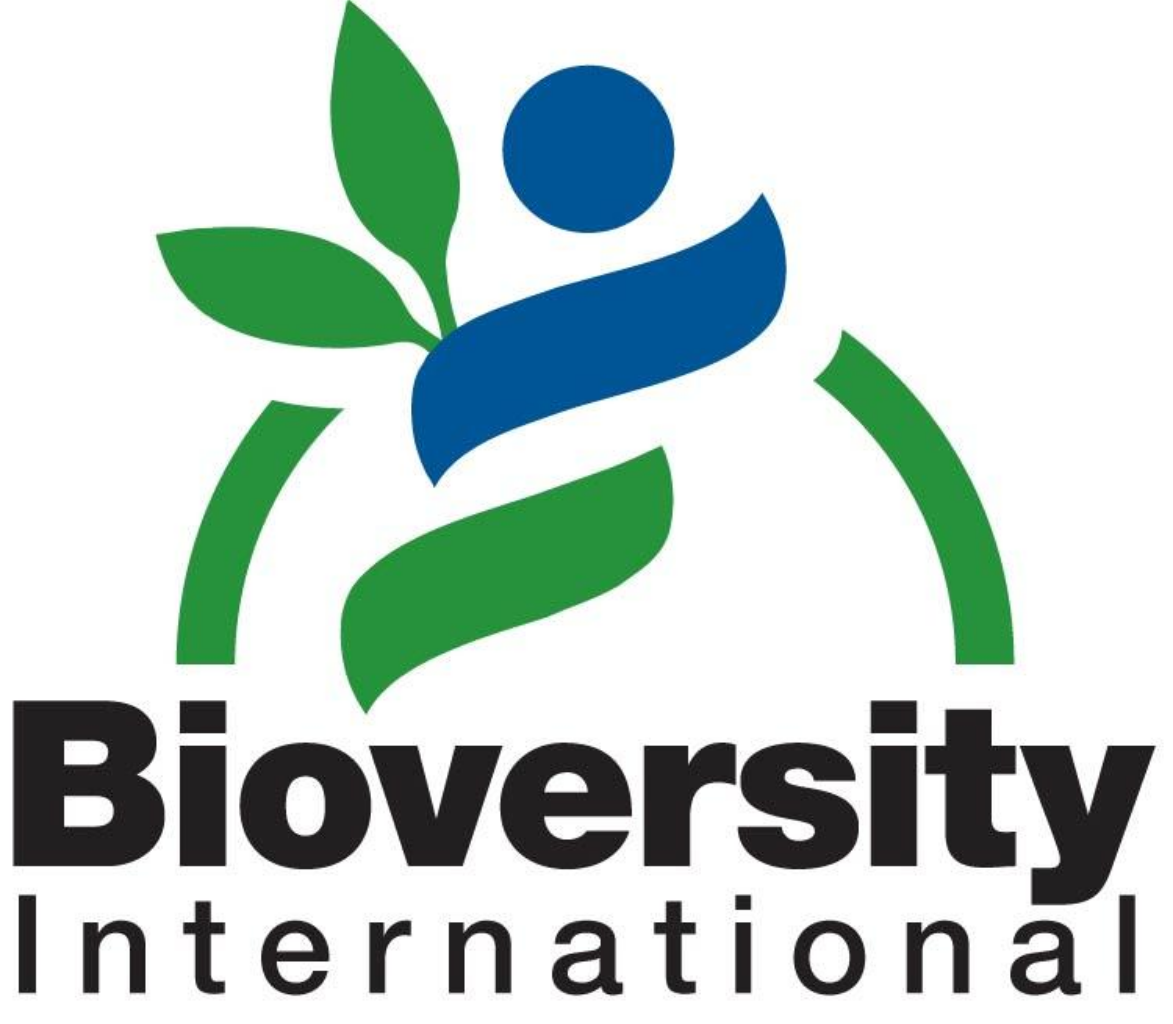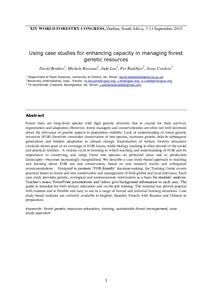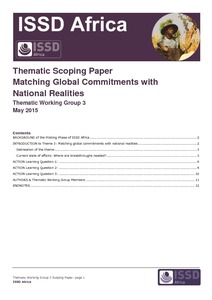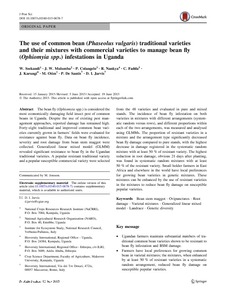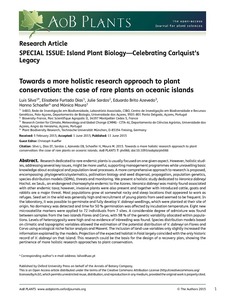Location
Bioversity International is a global research-for-development organization. We have a vision – that agricultural biodiversity nourishes people and sustains the planet.
We deliver scientific evidence, management practices and policy options to use and safeguard agricultural and tree biodiversity to attain sustainable global food and nutrition security.
We work with partners in low-income countries in different regions where agricultural and tree biodiversity can contribute to improved nutrition, resilience, productivity and climate change adaptation.
Members:
Resources
Displaying 81 - 85 of 184Using case studies for enhancing capacity in managing forest genetic resources
Forest trees are long-lived species with high genetic diversity that is crucial for their survival,
regeneration and adaptation. However, forest managers and conservationists are often not well informed
Thematic Scoping Paper: Matching global commitments with national realities.
The use of common bean (Phaseolus vulgaris ) traditional varieties and their mixtures with commercial varieties to manage bean fly (Ophiomyia spp .) infestations in Uganda
The bean fly (Ophiomyia spp.) is considered the most economically damaging field insect pest of common beans in Uganda. Despite the use of existing pest management approaches, reported damage has remained high. Forty-eight traditional and improved common bean varieties currently grown in farmers’ fields were evaluated for resistance against bean fly. Data on bean fly incidence, severity and root damage from bean stem maggot were collected. Generalized linear mixed model (GLMM) revealed significant resistance to bean fly in the Ugandan traditional varieties.
Towards a more holistic research approach to plant conservation: the case of rare plants on oceanic islands
Research dedicated to rare endemic plants is usually focused on one given aspect. However, holistic studies, addressing several key issues, might be more useful, supporting management programs, while unravelling basic knowledge about ecological and population level processes. A more comprehensive approach to research is proposed, encompassing: phylogenetics/systematics, pollination biology and seed dispersal, propagation, population genetics, species distribution models (SDMs), threats and monitoring.

